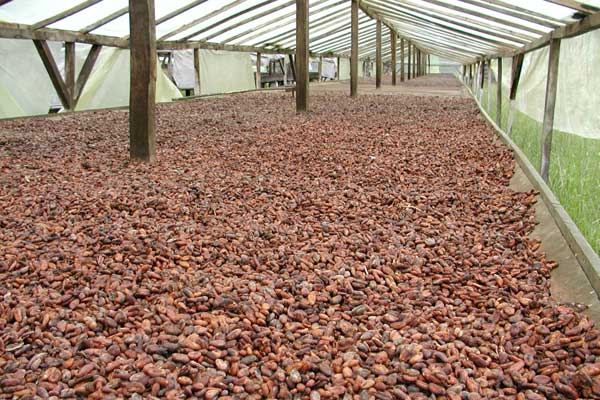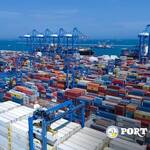Eight members of the European Parliament (EU) have called on the European Commission (EC) to open negotiations with Côte d’Ivoire and Ghana on a proposal by the two largest cocoa producing countries to establish an Economic Pact for Sustainable Cocoa to address the entire cocoa value chain.
Integrated efforts across policy required
They are putting pressure on the EC regarding its due diligence legislation as they argue that eradicating child labour and deforestation require integrated efforts across policy.
Living income for farmers
According to them, an Economic Pact for Sustainable Cocoa that addresses the key sustainability barrier of a living income for farmers will be a key enabler in support of reaching the objectives of the upcoming EU legislation on deforestation-free products and corporate sustainability due diligence.
Addressing low price, key driver of child labour and deforestation
The Group, in a letter dated April 27, 2022, and addressed to the Executive Vice-Presidents and Commissioners of the EU, noted that the “low and unstable price” the West African countries and their farmers receive for their cocoa is a “key driver of child labour and deforestation”, and not only a human right issue, needing immediate attention.
Names of the 8 members of the European Parliament
The eight members of the European Parliament who signed the letter to the EC are Maria Arena, Saskia Bricmont, Anna Cavazzini, Ignazio Corrao, Pascal Durand, Heidi Hautala, Helmut Scholz and Michal Wiezik.
Farmers live in extreme poverty, earning well under $1 per day
The vast majority of farmers in these two leading cocoa-producing countries live in extreme poverty, earning well under $1 per day.
Farmers earn only 6% final sale price
“Despite back-breaking labour, farmers receive a pittance for the cocoa they produce: only around six per cent of the final sale price of a chocolate bar,” they said.
Farmers received 16% of the final sale price in 1980
The eight members of the European Parliament stated that the situation cannot be said to be inevitable, saying in 1980, farmers received 16% of the final sale price, almost three times what they earn today.
Growing oversupply of cocoa
They observed that the low price of cocoa is partly as a result of a growing oversupply of cocoa on the world market, which had forced prices downwards over the years.
“This causes frequent price shocks. Companies can hedge against these risks and protect themselves, but small farmers cannot, and have no government subsidies or insurance to protect them,” they added.
“Next step” in the EU Cocoa Talks
In view of these, they urged the European Commission to take up the offer of Ghana and Côte d’Ivoire for an Economic Pact for Sustainable Cocoa as the “next step” in the EU Cocoa Talks.
The call was necessitated by a proposal by Ghana and Côte d’Ivoire to the EU for the adoption of an Economic Pact for Sustainable Cocoa in order to holistically address the economic, social, and environmental issues relating to sustainable development of the cocoa sector.
In a joint statement issued by the heads of state of the two leading cocoa-producing countries on February 18, 2022, they recognised that that the worst forms of child labour and deforestation “are linked to the living conditions of cocoa farmers.”
The Group agreed with the positions of Ghana and Côte d’Ivoire and said the proposed Economic Pact for Sustainable Cocoa would provide an opportunity to reach an agreement with the producer countries on a way forward on the key issue of price, as well as other sustainability issues.
The members said the Pact would also help to obtain a concrete outcome of the Cocoa Talks – an initiative which brings together representatives from EU member states, cocoa producing countries, industry and civil society organisations to advance the cocoa sustainability and equity agenda.
They said the negotiations should entail an agreement between all parties on what would be done to resolve the low price of cocoa, the management of cocoa supply to prevent market shocks, and sustainability.
“The negotiations should not only be conducted between the EU, and governments of Ghana and Côte d’Ivoire, but should bring together all important actors, such as cocoa-buying companies and NGOs.
“The Commission should engage stakeholders at the very start and map their vision for the desired outcome of such negotiations to lay the groundwork for the negotiations,” it said.
The eight MPs who said they have followed and championed the Cocoa Talks since their inception (in February 2021) were encouraged by seeing a diverse group of actors from producer and consumer countries come around the table to discuss sustainability issues in the cocoa sector.
Despite this, they said it remains somewhat unclear as to what is or will be the outcome of these talks.
“We have noted the Economic Pact for Sustainable Cocoa proposed by the governments of Côte d’Ivoire and Ghana during their visit to Brussels in February this year.
“During their visit, the Ivorian and Ghanaian governments rightly called attention to the low cocoa price as a fundamental missing element of the EU’s regulatory proposals on deforestation-free products and corporate sustainability due diligence.
The eight MPs argued that the proposal of an Economic Pact on Sustainable Cocoa provides an opportunity to reach an agreement with the producer countries on a way forward on the key issue of price, as well as on other sustainability issues, and to obtain a concrete outcome of the Cocoa Talks.
They, therefore, called on the Commission to open negotiations with Côte d’Ivoire and Ghana to reach an Economic Pact for Sustainable Cocoa.
Living Income Differential
In 2019, Ghana and Côte d’Ivoire introduced the Living Income Differential (LID) price mechanism, a fixed living income differential of $400 above the market price with a direct payout to farmers.
The eight members of the European Parliament lamented that in practice it has run into difficulties.
Global market prices have decreased since the launch of the LID and companies have since diversified their sourcing so that the two cocoa-producing governments are forced to lower the price paid to farmers.
The eight MPs welcome the European Commission’s proposals on deforestation-free products and corporate sustainability due diligence, saying it was “long overdue”.
It is their view that if sufficiently robust the proposals can provide a game-changing effect on sustainability and human rights issues in the cocoa sector.
“But they must be accompanied by measures to address the low prices that farmers receive for their cocoa. We wish to recall that the right to an adequate standard of living is a human right under the United Nations Declaration on Human Rights,” they emphasised.
Cocoa sector contributes 4.22% to GDP
The cocoa sector contributes 4.22% of Gross Domestic Product (GDP), 30% of export earnings.
Ghana, Côte d’Ivoire get only $5.75bn out of $100bn chocolate market
While the two countries contribute to more than 60% of the world’s cocoa output, their total earning from the sale of cocoa beans amounted to a paltry $5.75 billion whereas the chocolate market was worth some $100 billion in that same year.
Ghana, Côte d’Ivoire produce 60% of world’s cocoa
It means that the farmers whose toil and sweat produce 60% plus of the world’s cocoa earn 5.75% of the global value of their activity.
- Tight Race For Next GIS Boss - 10 March 2025
- Church of Jesus Christ, Ga Mantse Foundation renovate Adabraka School - 27 June 2024
- Manufacturers, Trade Minister tussle over proposed cement price regulation - 26 June 2024

